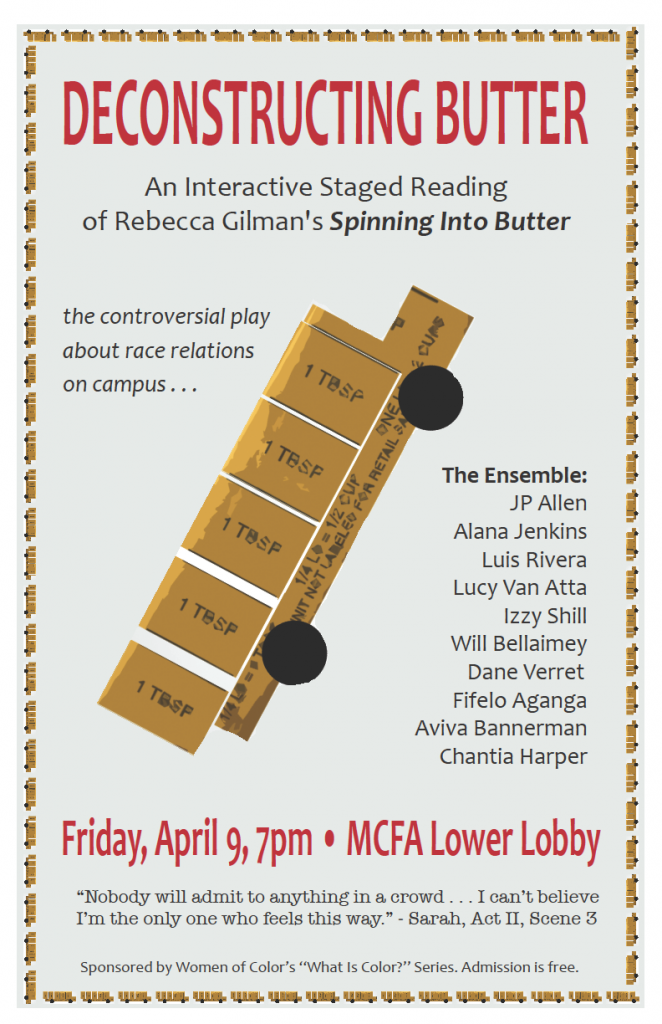 Can a fiction based upon a hoax tell us anything about who we are? “Spinning Into Butter” is a controversial and award-winning play, inspired by a racial incident that occurred while playwright Rebecca Gilman was a student at Middlebury in the early ’80s. On April 9th a multi-racial cast presented scenes from “Spinning Into Butter,” interspersed with audience reactions, to explore the script, its source material, and how we experience and respond to race at Middlebury in 2010.
Can a fiction based upon a hoax tell us anything about who we are? “Spinning Into Butter” is a controversial and award-winning play, inspired by a racial incident that occurred while playwright Rebecca Gilman was a student at Middlebury in the early ’80s. On April 9th a multi-racial cast presented scenes from “Spinning Into Butter,” interspersed with audience reactions, to explore the script, its source material, and how we experience and respond to race at Middlebury in 2010.
After the play, audience members were asked to write a question they were left with on the back of their programme. We collected these questions and posted them here. Please share your perspective on these issues.
Watch the performance
[middmedia 3572E0E0D4518E3AD5796C80F9E53083 imcbride db.mp4]